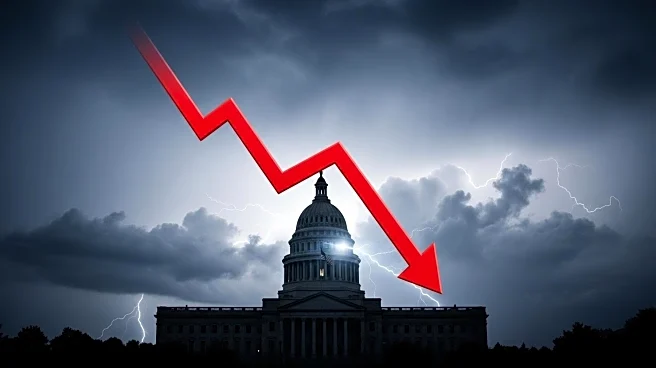What's Happening?
The U.S. government has shut down after the Senate failed to pass a temporary spending bill, leading to a significant drop in stock futures. The Dow Jones Industrial Average futures fell by 234 points, or 0.5%, while S&P and Nasdaq 100 futures declined by 0.6% and 0.7%, respectively. This shutdown is raising fears of a prolonged economic impact, as it coincides with concerns over a slowing labor market, inflation risks, and high stock valuations. The Congressional Budget Office estimates that approximately 750,000 federal employees will be furloughed. President Trump has threatened permanent mass firings, adding to the economic uncertainty.
Why It's Important?
The shutdown's impact on the stock market highlights the fragility of the current economic environment. Investors are worried about the potential for a drawn-out shutdown to exacerbate existing economic challenges, such as inflation and labor market slowdowns. The furlough of federal employees could lead to decreased consumer spending, further affecting economic growth. Additionally, the threat of permanent job losses adds a layer of uncertainty that could deter investment and spending, potentially leading to a broader economic downturn.
What's Next?
If the shutdown continues, it could lead to increased market volatility and further declines in stock prices. Political leaders may face pressure to negotiate a resolution to prevent long-term economic damage. Businesses and investors will likely monitor developments closely, as prolonged uncertainty could impact financial planning and investment strategies.










